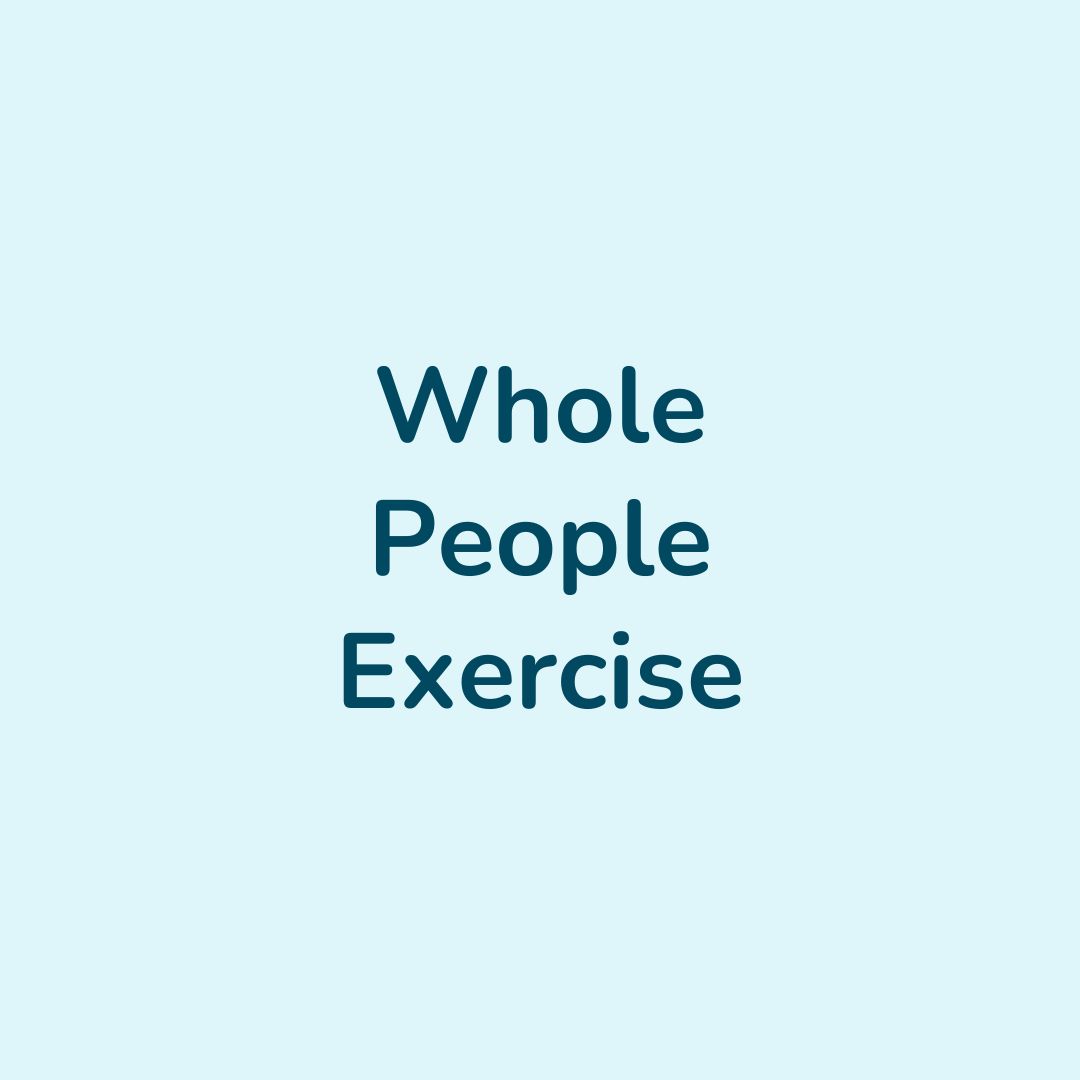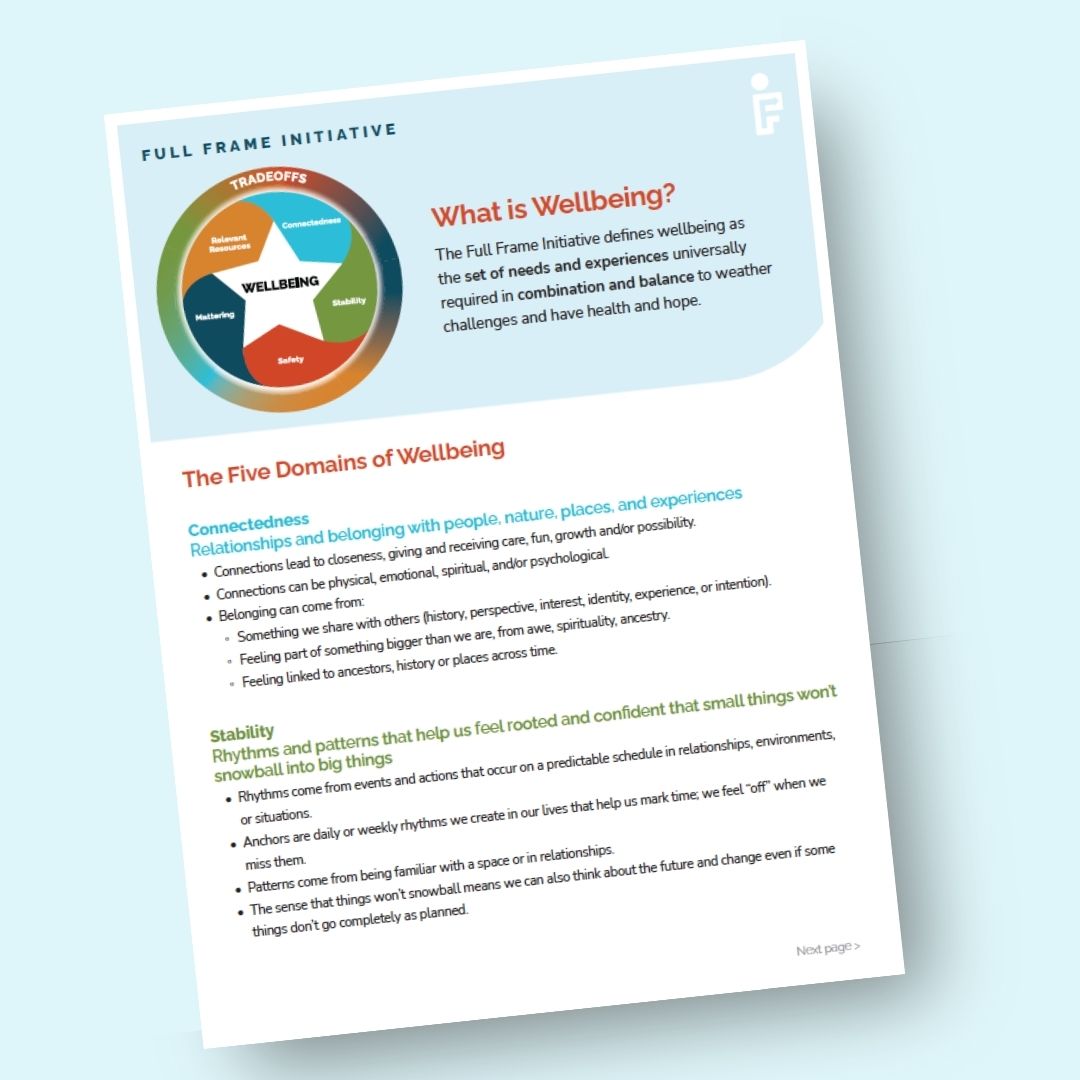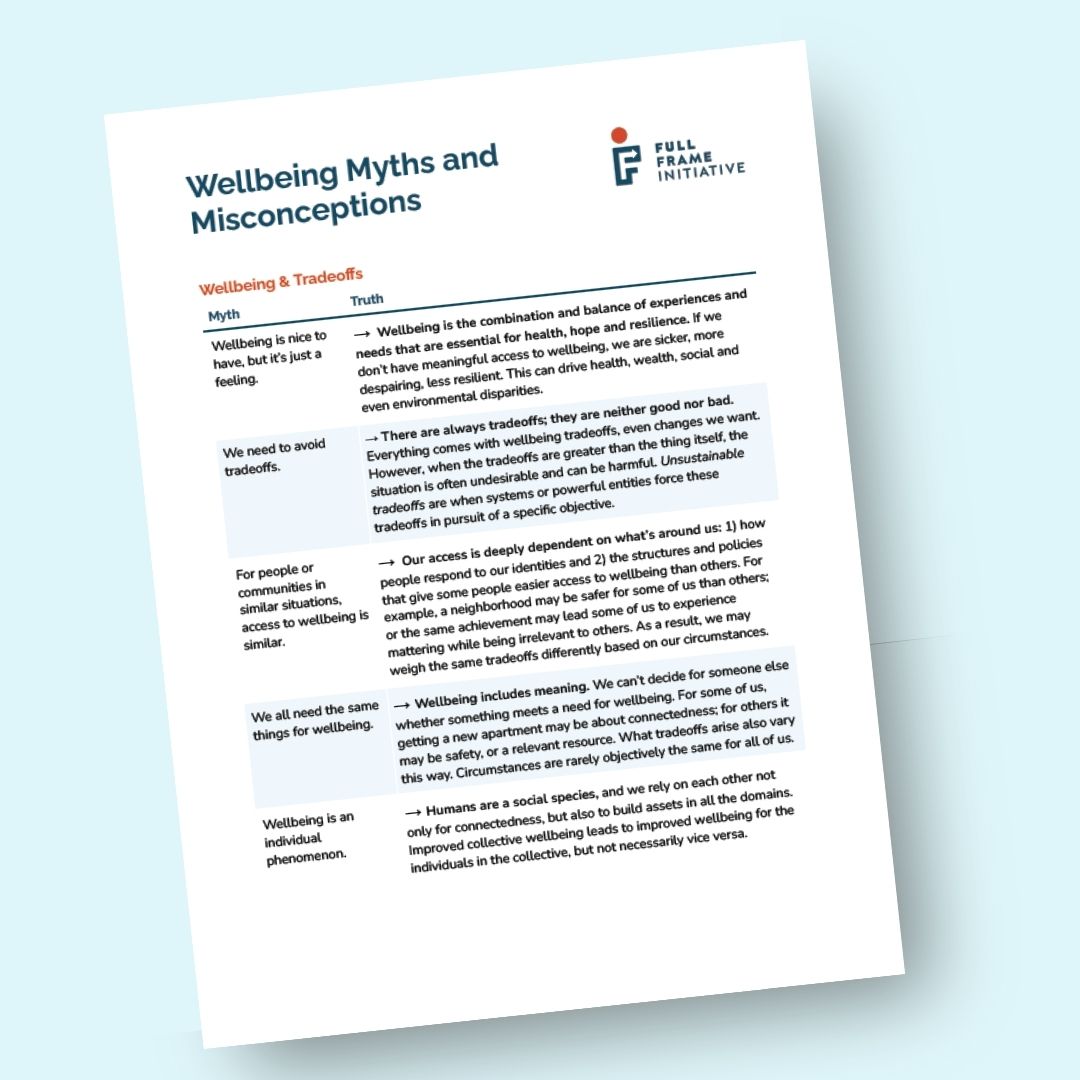Write down five identities or roles that you have. For example: gardener, pet parent, mother, athlete, etc.
This exercise is part of the Wellbeing Bootcamp.

Changing systems requires seeing things from new and unfamiliar perspectives. This means not just learning about wellbeing, but also training our brains to adapt to new ways of being, working and thinking.
To see an example of how to use this exercise in a group setting, review the facilitator guide.
Get out a pen and paper to try out this exercise designed to help us experience the importance of being whole.
Write down five identities or roles that you have. For example: gardener, pet parent, mother, athlete, etc.
Now, cross one of those identities off the list.
Now, cross another off the list. You should have three remaining.
Do it again.
And do it one more time.
You should be left with one identity on your paper. Now, consider: how would it make you feel if everyone knew you only through that one identity? Write down your thoughts.
What if that one identity was an identity that you are not proud of?
We live in a country where our intersecting systems primarily see people through just one identity. And often that identity is one they’re not proud of.
Think about:

How can we ensure that everyone has a fair shot at wellbeing? Utilize our Wellbeing Design Principles to turn the wellbeing framework into action.

The Full Frame Initiative defines wellbeing as the set of needs and experiences universally required in combination and balance to weather challenges and have health and hope.

Wellbeing isn't just a "nice to have." In this resource, we break down the myths and misconceptions about wellbeing and tradeoffs.